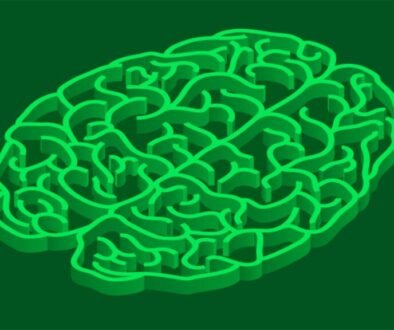Low carbohydrate plans can increase the development of polyps
[ad_1]

- Colorectal cancer levels have increased in children, adolescents and young adults in recent years.
- Researchers have recently studied different types of food and bacteria to see if the intestinal microbiome and the diet have an impact on the development of colorectal cancer.
- Scientists have combined three different regimes with three different bacterial strains to see what effects – if necessary – regimes and bacterial tensions had on the intestine.
- They learned that a low -carbohydrate and low fiber diet combined with a particular stump of Escherichia coli can lead to an increase in polyps in the colon, which can lead to the development of colorectal cancer.
Low carbohydrate diets, such as the keto diet, have increased in popularity in recent years, but many experts are wondering if the health effects of a more limited diet could have negative consequences.
Researchers at the University of Toronto in Canada recently conducted a study to explore how low -carbohydrate diets can affect bacteria related to colorectal cancer.
The researchers used mice in their study and studied them on low -carbohydrate, normal and westernized plans and different strains of bacteria.
They focused on whether these diets have an impact on certain bacteria and how it can contribute to the development of colorectal cancer.
Their study results have shown that a type of They showed cold is negatively affected by low -carbohydrate diets. Scientists found that it increased the development of polyps. Some polyps have the potential to turn into colorectal cancer.
Colorectal cancer, which occurs in the colon and rectum, is one of the most
Recent data has shown that colorectal cancer cases in adults aged 30 to 34 have seen an increase of 71% and in adults aged 35 to 39, this number saw an increase of 58%E from 1999 to 2020.
Although there is no way to guarantee that we can prevent colorectal cancer, there are certain ways that people can
- Break down
- Limit alcohol intake
- Eat a diet rich in vegetables, fruit and whole grains
- Limit processed foods and red meat.
Since researchers suspect that food choices can be linked to the development of colorectal cancer, the new study was aimed at determining if there was a link between specific types of diets combined with certain types of bacteria.
They focused on three bacteria: Bacteroides fragile,, Helicobacter hepaticusAnd E. colithat they used to colonize the mice.
“These microorganisms cause DNA damage to intestinal epithelial cells either directly by the production of genotoxins, or indirectly by the induction of inflammatory mediators damaging DNA,” said the authors in the study document.
The study focused on the mice that has been nourished with low -carbohydrate and low -fiber, normal chow diets and western style diets, which were rich in fat and sugar.
After having fed the mice, their specific types of diet for nine weeks, scientists checked the development of the polyp, then measured any development of polyp at 16 weeks.
Bacteria and regimes tested, only the combination of the low carbohydrate diet and E. coli have shown the potential to increase the risk of colorectal cancer. This has been significant since, according to the authors of the study, E. coli is present in 60% of cases of colorectal cancer.
The mice of this combination had a higher number of polyps and tumors, which can increase the risk of developing colorectal cancer. In addition, these mice have also shown DNA damage and other markers that lead to a higher risk of developing colorectal cancer.
The low carbohydrate diet has dited the mucus layer in the colon which protects against microbes. In mice with E. coliThis allowed the Colibactin to reach the cells of the colon. Colibactin is a
These mice have also experienced cell senescence, which can cause the development of cancer. Researchers have found reduced intestinal health levels in mice on low -carbohydrate diets with fiber with fiber with fiber with fiber with fiber with fiber with fiber E. colicontributing to inflammation.
Overall, mice under diet with a low carbohydrate content combined with E. coli have experienced such a disruption and damage to their intestinal microbiome that researchers found that it was an environment that promotes colorectal cancer.
Also concerning these results, the researchers found that adding fibers to the food of these mice reduced the formation of tumors and helped control inflammation.
Researchers want to continue this research line by determining if certain types of fibers are more protective and study their effects on humans.
Marianne Cusick, MD, an associate professor of colon and rectal surgery at Uthealth Houston, who was not involved in recent research, was maintained with Medical news today on the results of the study.
“The study of the mouse underlined in the article suggests a significant potential link between low -carbohydrate regimes E. coliAnd colorectal cancer, “she told us.” Researchers found that a low carbohydrate diet associated with a strain of E. coli This produces Colibactin has led to the development of colorectal cancer in mice. »»
CUSICK explained how the intestinal environment created by the low -carbohydrate, low fiber and regime diet and E. coli caused “increased inflammation in the intestine, a thinner mucus barrier and a higher prevalence of polyps, which are pre -cursers of cancer”.
Although she called the “exciting and convincing” results, she noted that additional research is necessary before she could be applied to humans.
Since the study highlighted the importance of a healthy mucus barrier in the colon, Cusick has mentioned certain types of fibers that can help maintain it.
“Soluble fibers, such as inulin, pectin and beta-glucan, found in grains, fruits and vegetables, are particularly beneficial. These fibers are fermented by intestinal bacteria, producing short chain fatty acids (SCFA) such as butyrate, which strengthen the mucous layer and supports the health of the GUT. ” ».
– Marianne Cusick, MD
Nilesh Vora, MD, certified hematologist, medical oncologist and medical director of Memorialcare Todd Cancer Institute of the Long Beach Medical Center, in California, not involved in this study, also maintained with Mnt on its conclusions.
“I think it can be considered generating hypotheses,” said Vora about the study. “There may be a real link here which could explain the incidence of colorectal cancer.”
Vora has also recognized that more research is necessary on this subject, but said that “the intestinal biome is a popular research area in its link with colon cancer, and many points of study will emerge here.”
[ad_2]




